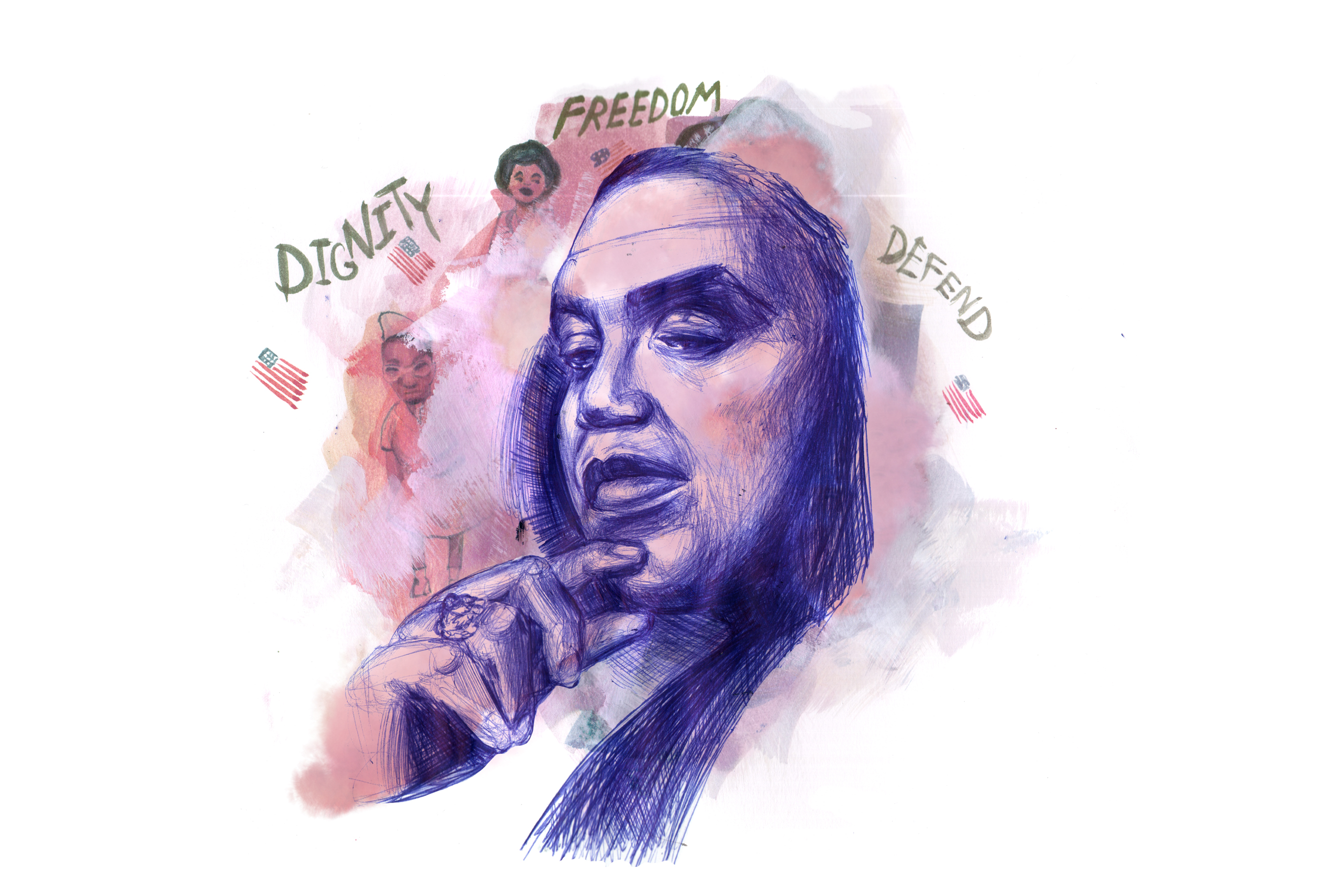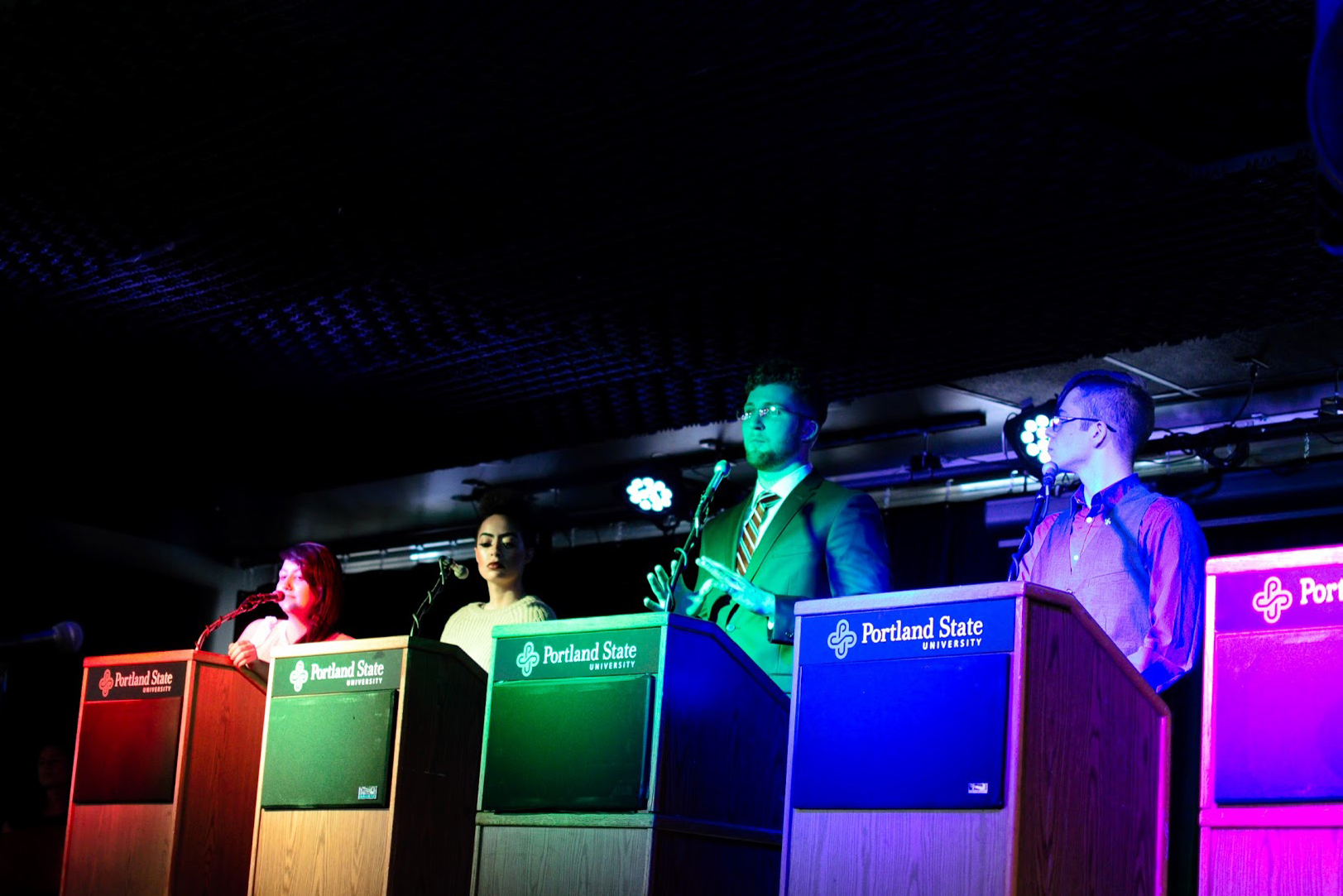On March 29, the Women’s Resource Center’s Women of Color Action Team, the Center for Global Diversity and Inclusion, and the Cultural Resource Center sponsored a screening of the documentary Reflections Unheard: Black Women in Civil Rights as part of their docuseries for Women’s History Month.
“I thought this was a really great way to end the Women’s History Month docufilm series because we’re taking it back to the beginning in terms of civil rights and black women,” said Jasmin Hunter, the leadership development coordinator for the Women of Color Action Team.
“Highlighting a community we don’t hear much about is a big deal to us, and bringing it back to movements that are still happening today,” Hunter said.
The film started as a project for Nevline Nnaji, the director, to make sense of her own experience as a young black woman. She’d started reading a lot of black feminist literature, including Elaine Brown’s A Taste of Power. The book inspired the film’s historical element; Brown reveals the abuses women faced within the Black Panther party.
“That’s the first time that I had ever heard about any of this happening because I had this vision of civil rights being perfect and liberating for everybody,” Nanji said. “So I felt like people needed to hear about it.”
The documentary interviews black women who were activists during the civil rights movement and members of organizations like the Black Panthers and the Student Nonviolent Coordinating Committee. It documents their marginalization between the male-dominated Black Power movement and the middle-class white feminist movement.
The film also covers issues of education and reproductive, racial and social justice.
“Those are still movements that are very active,” Hunter said. “Organizations come and go, but these ideas never really go away. They just shift and change and evolve.”
When Hunter first saw the film, she said it was a jarring experience for her. “Then I finally realized the reaction I was having was because black women are seen as the experts of their own experience in this film, and that’s a perspective that’s often missing,” Hunter said.
In Reflections Unheard, there are open-ended interviews with black women talking about their experiences without being asked to validate them.
“I think that kind of qualitative sharing is really important and something that is often missing,” Hunter said. “Sometimes we’re so stuck on the numbers that stories get lost.”
Dr. Shirley A. Jackson, a professor and the chair of black studies at Portland State, introduced the film and emphasized the sacrifices these women made and the comforts they gave up in order to achieve the goals of the movement.
“For me, the most significant part of the film is hearing African-American women support a variety of different civil-rights programs (race, feminist, class, welfare rights, etc.),” Jackson said. “They make it clear that while there are some commonalities among different groups of women, there are also differences between them.”
Janit Saechao is a senior art-history major and member of the Women of Color Action Team who attended the event and also found these differences important.
“I think what’s particularly significant for everyone to take into account is that the women of color movement was started by black women,” Saechao said. “It was their experience and their push that brought together intersectionality.”
Intersectionality refers to the way race, gender and class connect and cannot be isolated from one another. For women of color this has, and continues to pose, specific challenges as they are often asked to focus on one part of their identity or experience at the expense of another.
“Without intersectionality, as we saw in the film, it is very alienating for a lot of people,” Saechao said. “Oftentimes for myself personally, I feel that I have to check my womanness at the door when I’m in racial-justice movements, or I’ll have to check my race as an Asian at the door when I’m in the feminist movement. And that’s something that’s still happening.”
After the film screening, Hunter facilitated a conversation with Dr. Roberta Hunte, an assistant professor in black studies and women, gender and sexuality studies at PSU.
“This film does a great job expressing the ways black women engage with feminist practice for gender and racial justice both in the larger society and within our communities,” Hunte said.
After a successful Women’s History Month, the WRC is now preparing for Sexual Assault Awareness Month, including Take Back the Night at the end of April. They will also have a Take Back the Day symposium featuring workshops submitted by students to discuss what’s happening on different college campuses.






